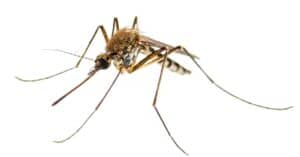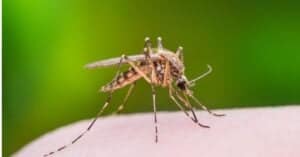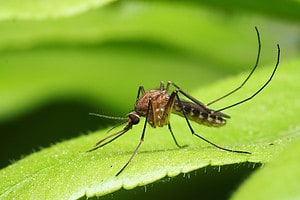Mosquito repellent is a necessity for safe and fun outdoor activities. However, there are a few reasons why you might want to avoid store-bought varieties and instead try your hand at making your own. In that case, you’re in luck! People have been making their own homemade mosquito repellents for thousands of years. So, you have hundreds of recipes you can choose from, but which ones are the most effective? How can you tell? We have done all the hard work for you and found our recommendation for the most effective homemade mosquito repellent.
Why Use Homemade Mosquito Repellents?
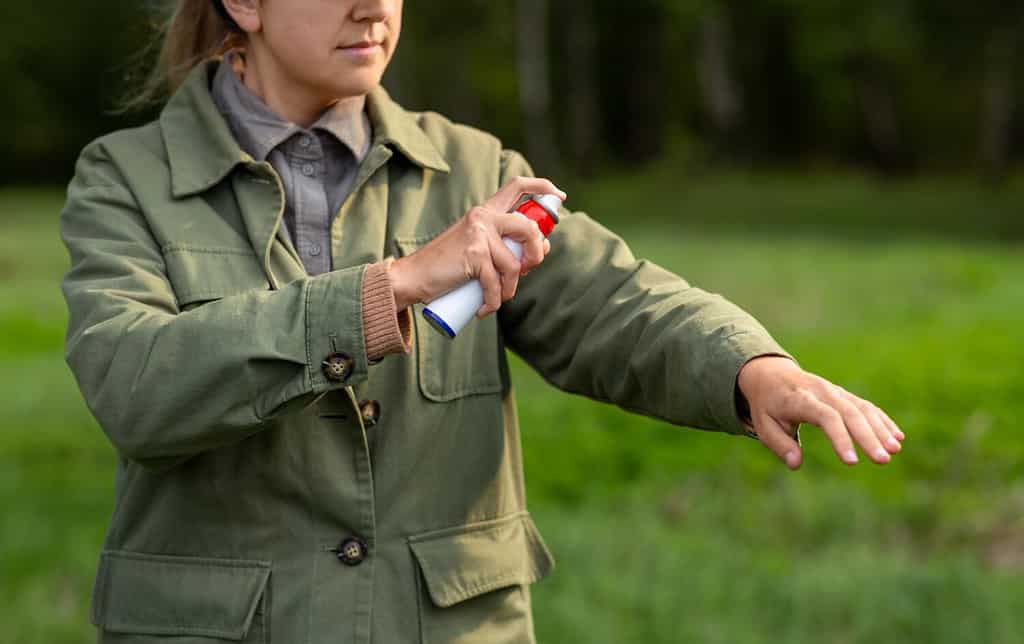
DEET is powerful. Many organizations recommend that higher concentrations should only be applied to outer clothing, never to the skin.
©Syda Productions/Shutterstock.com
There are three main reasons why someone might want to use homemade mosquito repellents. These are cost, the chemicals in commercial mosquito repellent, and availability.
Depending on where you live or camp, the amount of mosquito repellent you need to apply will vary. In every case, however, one application is not enough. You will often need to bring multiple bottles of mosquito repellent and apply it regularly throughout the day on both you and your clothes and equipment. If you are outdoors a lot, you can go through many bottles of mosquito repellent every year. These costs can add up quickly, so a cheaper homemade alternative starts to look very attractive.
Next, commercial mosquito repellents are only available in stores, and if you happen to be in an area that doesn’t have any, or ran out of their supply, it is useful to know what household materials you have that can be used to create your own mosquito repellent.
The Power of DEET
The main active ingredient in commercial mosquito repellent is the chemical diethyltoluamide, also known as DEET. It is the most effective and most common insect repellent. It repels everything from mosquitos to flies and worms and lasts for many hours. While the health and environmental risks of DEET are low if used correctly, there are some things that cause many people to look for other options.
Incorrect and long-term use of DEET have been shown to have adverse health effects. DEET can irritate the eyes, cause breathing difficulties, headaches, or even strong epidermal reactions. Some long-term National Park employees who use DEET products on a regular basis were even more likely to develop insomnia, mood changes, and impaired cognitive abilities. For these reasons, Health Canada limited DEET concentration in consumer products to only 30%.
Other health organizations recommend against using DEET on children younger than two months old, and not using it under clothes or at the same time as sunscreen, as that would allow the DEET to penetrate deeper into the skin, causing problems. Additionally, DEET can damage other materials like plastic, spandex, varnished surfaces, and other synthetic fabrics. It is also slightly toxic for freshwater fish, and tests show it is also toxic for many kinds of zooplankton.
In the end, sometimes you don’t really need a reason to prefer natural homemade products to store-bought varieties. Knowing all the ingredients of something you put on your skin, spending time with family while mixing the repellent, and reducing plastic waste are all increasingly popular (and worthy) reasons for choosing homemade variants of anything, mosquito repellent included.
Our Top Homemade Mosquito Repellent Recommendation

Many essential oils are core ingredients in the most popular repellent recipes. Lavender essential oil is very popular.
©iStock.com/Olivka888
There is a plethora of recipes for homemade mosquito repellent. For this article, we limited our research to recipes that can be applied to the skin for hiking or camping. There are many other options and recipes for repelling mosquitos in your backyard and campsite. We did not include those in our considerations.
We dug through hundreds of recipes and read expert opinions. After our own thorough research (and some testing in the field), our top recommendation for the best homemade mosquito repellent is eucalyptus and witch hazel.
The recipe for eucalyptus and witch hazel repellent:
1/3 cup witch hazel
1/3 cup water
40 drops of eucalyptus essential oil
Combine all the ingredients in a spray bottle, or a bottle from which you can easily pour the solution into your hands to apply to your skin. That’s it! Apply this repellent often, usually before the smell of the previous application wears off.
Homemade concoctions of any recipe will not last as long as DEET or professional-grade mixtures. So, you should expect to apply this repellent far more often than you might be used to.
Why Does it Work so Well?
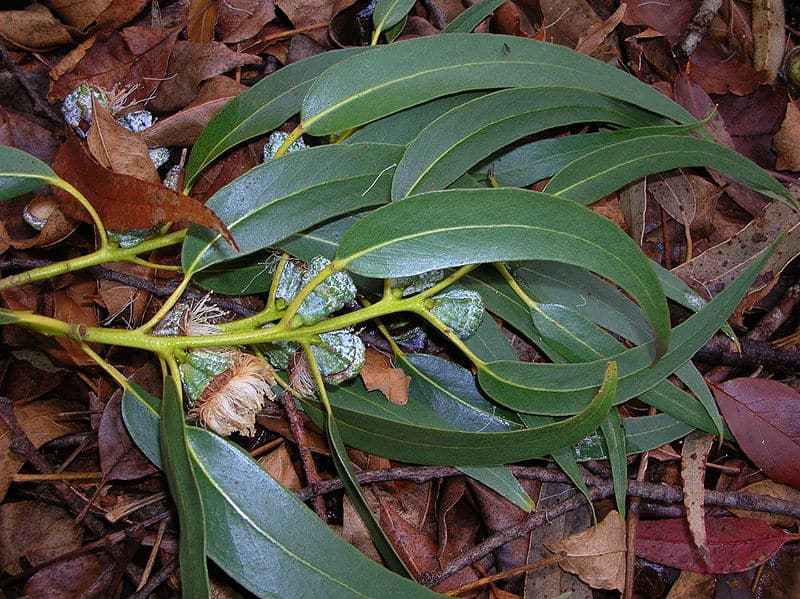
Eucalyptus leaves like these are naturally repellent to mosquitos.
©Forest & Kim Starr, CC BY 3.0 – License
The key to repelling mosquitos is masking your natural scents from female mosquitos looking for a meal. Often, strong scents that we find pleasant are strong enough to hide the smell of our skin, blood, and sweat from hungry mosquitos. We picked the eucalyptus and hazel mixture because of their pleasing yet powerful aroma.
Eucalyptus is naturally repellent to mosquitos, in addition to having a strong scent. Mosquitos tend to avoid the plant in nature. Witch hazel doesn’t have a scent we can detect. As a base ingredient, it combines well with the eucalyptus to create a pleasant formula for repeated applications.
If your mosquito problem is particularly bad, you can combine other strong, masking smells with your homemade repellent to repel these invaders in your backyard or campground. These can include incense, fire smoke, burning egg cartons, coffee grounds, and garlic water.
Once you have made your own eucalyptus and witch hazel repellent a couple of times, you might feel comfortable trying new recipes and mixtures. We recommend you do! You can find what scents and smells your family likes better, and which ones work better at repelling the mosquitos in your area. You can apply some mixtures like sunscreen, while others remain in liquid form. Discovering which scents and mixtures match the natural smell of your backyard or your preferred campsite is half the fun.
The photo featured at the top of this post is © iStock.com/Lifemoment
Thank you for reading! Have some feedback for us? Contact the AZ Animals editorial team.




